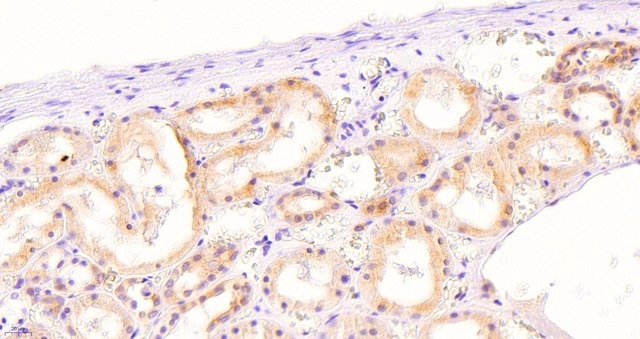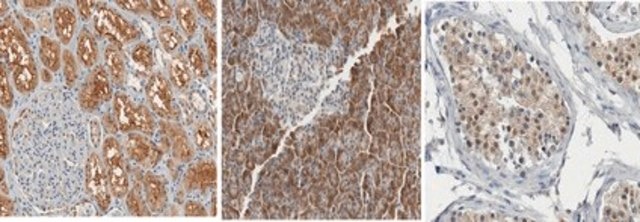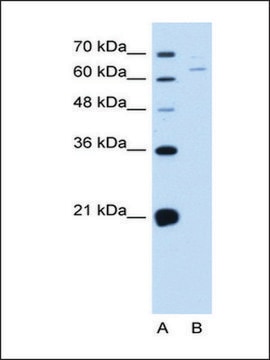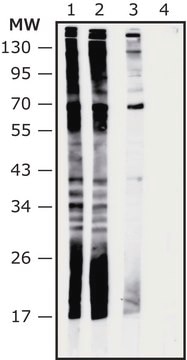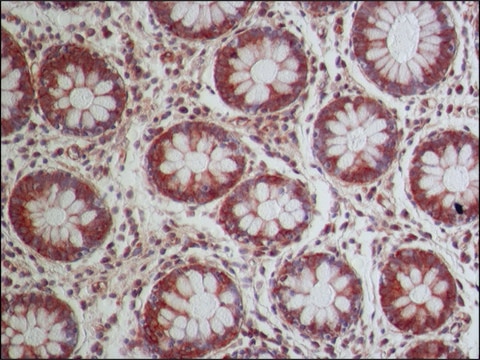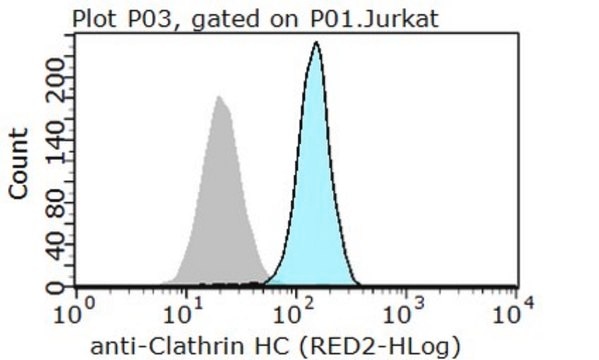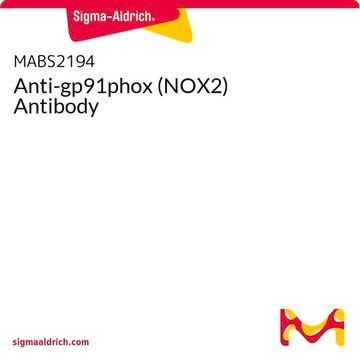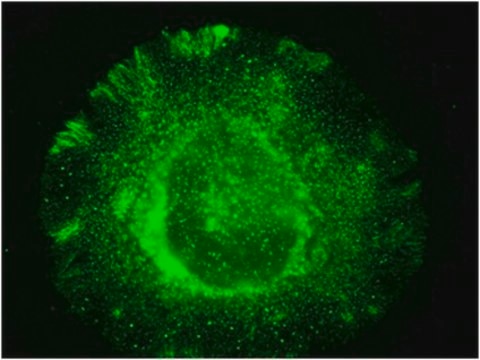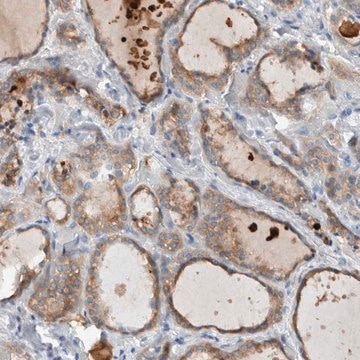SAB4200097
Anti-NOX1 antibody produced in rabbit
~1.5 mg/mL, affinity isolated antibody
Synonym(s):
Anti-GP91-2, Anti-MOX1 (mitogenic oxidase 1), Anti-NADPH oxidase 1, Anti-NOH1 (NADPH oxidase homolog 1)
About This Item
Recommended Products
biological source
rabbit
conjugate
unconjugated
antibody form
affinity isolated antibody
antibody product type
primary antibodies
clone
polyclonal
form
buffered aqueous solution
mol wt
antigen ~72 kDa
species reactivity
human
concentration
~1.5 mg/mL
technique(s)
immunohistochemistry: 10-20 μg/mL using formalin-fixed, paraffin-embedded human colon
western blot: 0.5-1.0 μg/mL using HS68 cell extracts
UniProt accession no.
shipped in
dry ice
storage temp.
−20°C
target post-translational modification
unmodified
Gene Information
human ... NOX1(27035)
mouse ... Nox1(237038)
rat ... Nox1(114243)
General description
Application
- Immunocytochemistry.
- Immunoprecipitation
- Immunoblotting.
Biochem/physiol Actions
Physical form
Disclaimer
Not finding the right product?
Try our Product Selector Tool.
flash_point_f
Not applicable
flash_point_c
Not applicable
Certificates of Analysis (COA)
Search for Certificates of Analysis (COA) by entering the products Lot/Batch Number. Lot and Batch Numbers can be found on a product’s label following the words ‘Lot’ or ‘Batch’.
Already Own This Product?
Find documentation for the products that you have recently purchased in the Document Library.
Our team of scientists has experience in all areas of research including Life Science, Material Science, Chemical Synthesis, Chromatography, Analytical and many others.
Contact Technical Service